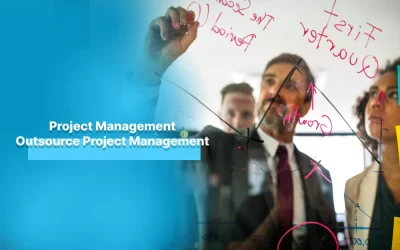CRM MS Dynamics Developer Customer Relationship Management (CRM) systems are essential tools for businesses to manage interactions with current and potential customers. Microsoft Dynamics 365, one of the leading CRM...
Outsource UX Design
outsource ux design In today’s fast-paced digital landscape, businesses are continually striving to create exceptional user experiences to stay ahead of the competition. User Experience (UX) design plays a crucial role...
What is outsourcing project management?
What is outsourcing project management? Project management is the application of knowledge, skills, tools, and techniques to project activities to meet project requirements. It involves planning, executing, and closing...
A Comprehensive Guide to Becoming a Scrum Master
A Comprehensive Guide to Becoming a Scrum Master In the ever-evolving world of technology and project management, the role of a Scrum Master has become increasingly vital. As companies strive to adopt agile...

What is an Agile Coach?
What is an Agile Coach?
An Agile Coach is a professional who helps organizations, teams, and individuals adopt and improve agile practices and principles. They play a pivotal role in facilitating agile transformations, fostering a culture of continuous improvement, and ensuring that agile methodologies are effectively implemented and sustained. Unlike traditional coaches, Agile Coaches work not only with teams but also with organizational leaders and stakeholders to drive holistic change.
Read More | Backend Developer
Key Responsibilities of an Agile Coach
Facilitating Agile Adoption:
Guiding teams and organizations through the transition to agile methodologies.
Providing training and workshops on agile principles, practices, and tools.
Mentoring and Coaching:
Offering one-on-one coaching to team members, Scrum Masters, Product Owners, and leaders.
Helping individuals develop their skills and understanding of agile practices.
Promoting Continuous Improvement:
Encouraging teams to reflect on their processes and identify areas for improvement.
Facilitating retrospectives and other feedback sessions to foster a culture of continuous learning.
Removing Impediments:
Identifying and addressing obstacles that hinder the team’s progress.
Working with organizational leaders to remove systemic barriers to agile adoption.
Fostering Collaboration:
Promoting open communication and collaboration within and between teams.
Encouraging cross-functional teamwork and alignment on project goals.
Aligning with Organizational Goals:
Ensuring that agile practices align with the organization’s strategic objectives.
Helping leaders understand and support agile transformations.
Essential Skills for an Agile Coach
To be effective, an Agile Coach must possess a blend of technical and interpersonal skills.
Here are some of the key skills required:+
Here are some of the key skills required:
Deep Understanding of Agile Frameworks:
In-depth knowledge of various agile frameworks such as Scrum, Kanban, Lean, and SAFe (Scaled Agile Framework).
Ability to tailor agile practices to suit the specific needs of the organization.
Coaching and Mentoring:
Strong coaching skills to guide individuals and teams in their agile journey.
Experience in mentoring team members and fostering their professional growth.
Facilitation:
Expertise in facilitating agile ceremonies such as stand-ups, sprint planning, reviews, and retrospectives.
Ability to manage and resolve conflicts during these sessions.
Change Management:
Skills in managing organizational change and helping teams navigate through transitions.
Understanding of change management principles and practices.
Communication:
Excellent verbal and written communication skills to convey complex concepts clearly.
Active listening skills to understand the needs and concerns of the team.
Leadership:
Ability to lead by example and inspire others to embrace agile practices.
Strong decision-making skills to guide teams through challenging situations.
Steps to Becoming an Agile Coach
Becoming an Agile Coach involves a combination of education, certification, and practical experience. Here’s a roadmap to guide you on your journey:
Learn Agile Methodologies:
Start by gaining a solid understanding of agile methodologies. There are numerous online resources, books, and courses available to help you learn.
Gain Practical Experience:
Participate in agile projects to understand the practical challenges and dynamics of agile teams.
Obtain Certifications:
Pursue relevant certifications such as Certified Agile Coach (ICP-ACC) from ICAgile, Professional Agile Coach (PAC) from Scrum.org, or SAFe Program Consultant (SPC) from Scaled Agile.
Work in agile roles such as Scrum Master, Product Owner, or agile team member to gain hands-on experience.
Certifications validate your knowledge and commitment to potential employers.
Develop Coaching Skills:
Enhance your coaching and mentoring skills through training and practice.
Consider obtaining coaching certifications such as Certified Professional Co-Active Coach (CPCC) or International Coach Federation (ICF) credentials.
Read More | DevOps Engineer
Build Your Network:
Join agile and coaching communities to connect with other professionals, share knowledge, and learn from their experiences.
Networking can also help you find job opportunities and stay updated on industry trends.
Continuously Improve:
Agile practices are constantly evolving. Stay updated with the latest trends, tools, and best practices by attending conferences, webinars, and reading industry publications.
Seek feedback from peers and mentors to continuously improve your coaching approach.
The Impact of an Agile Coach
The presence of a skilled Agile Coach can significantly impact the success of an agile transformation. Here’s how Agile Coaches contribute to organizational success:
Enhanced Team Performance:
Agile Coaches help teams adopt efficient practices, leading to improved productivity and quality of work.
They foster a collaborative environment where team members feel empowered and motivated.
Increased Agility:
By promoting agile principles, Agile Coaches enable organizations to respond quickly to market changes and customer needs.
They help create a culture of adaptability and resilience.
Better Alignment:
Agile Coaches ensure that agile practices align with the organization’s strategic objectives, leading to better overall performance.
They facilitate communication and collaboration between teams and leadership.
Continuous Improvement:
Agile Coaches drive a culture of continuous improvement, encouraging teams to regularly reflect on their processes and make necessary adjustments.
This leads to sustained long-term success and growth.
Real-World Success Stories
Many organizations have experienced transformative success with the help of Agile Coaches. For example:
ING: The banking giant ING adopted agile practices and saw significant improvements in productivity and customer satisfaction, thanks to the efforts of their Agile Coaches.
Spotify: Known for its agile approach, Spotify attributes part of its success to its effective Agile Coaches who promote a culture of continuous improvement and innovation.

Becoming an Agile Coach is a rewarding career path that offers the opportunity to lead organizations through transformative change. By developing the necessary skills, obtaining certification, and gaining practical experience, you can embark on a fulfilling journey as an Agile Coach. Whether you’re just starting out or looking to enhance your existing skills, the role of an Agile Coach offers endless possibilities for growth and impact in the world of agile project management.
Agile Coaches are not just facilitators; they are change agents who help organizations thrive in a rapidly changing world. Their ability to inspire, guide, and support teams and leaders makes them invaluable assets in any agile transformation. If you’re passionate about agile methodologies and have a knack for coaching and mentoring, the path of an Agile Coach might be the perfect fit for you.




